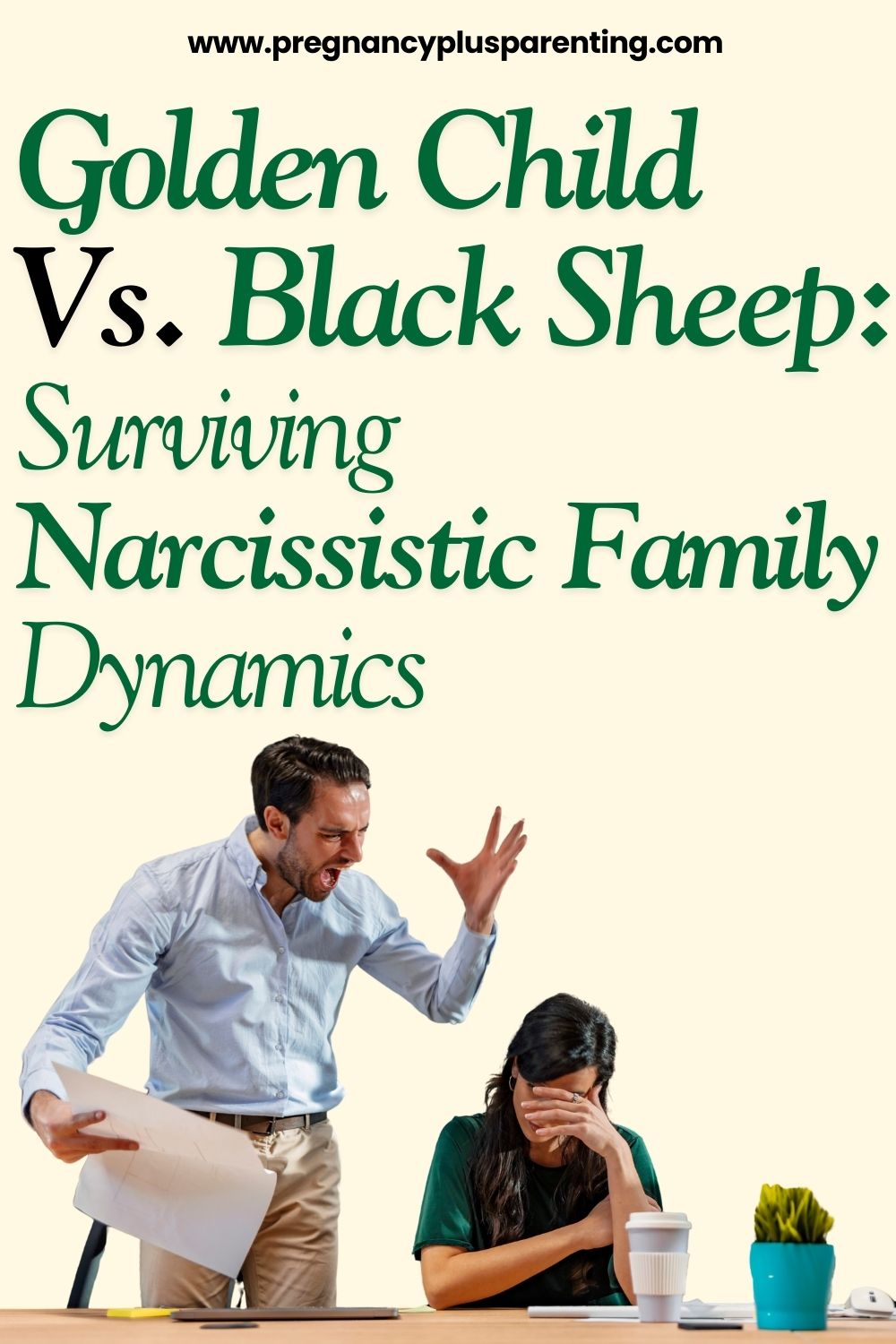Golden Child vs. Black Sheep: Surviving Narcissistic Family Dynamics
How Narcissistic Parents Pit Siblings Against Each Other and the Path to Healing
In some families, an invisible boundary runs right through the children’s room. On one side is the “golden child,” praised to the skies by their parents, and on the other, the “black sheep,” who never seems to be enough.
When this split originates with a narcissistic parent, it is not accidental, but part of a psychological power play. The consequences for both children are profound—even if they are hurt in very different ways.
The mechanics of fission
Narcissistic parents often live in a constant internal struggle for control, validation, and admiration.
They need someone to strengthen their self-image—and someone onto whom they can project their own insecurities and mistakes.
This creates a role distribution:
The praised son (or the golden child ) is idealized, receives more recognition, more privileges and is presented as “proof” of one’s own good upbringing.
The disappointed daughter (or the black sheep) is criticized, overlooked, or blamed for problems – regardless of her actual behavior.
These roles are not static, but often very stable. They create an imbalance that strains not only the relationship with the parents but also the sibling relationship.
The Promised Son – Prisoner in a Golden Cage
At first glance, the praised son appears privileged. He receives praise, attention, perhaps even more material support. But this “preferential treatment” comes at a price.
Conditional love – Recognition depends on meeting the narcissistic parent’s expectations. Failure or dissent is not tolerated.
Loss of identity – He learns that he is loved because he fits a certain image, not for who he really is.
Pressure for perfection – Any deviation from the ideal threatens to jeopardize one’s special status.
Many golden children later report feeling like they were in a cage: shiny on the outside, but with no room for authenticity.
The disappointed daughter – in the shadows and under fire
The daughter, who is considered a disappointment, bears the burden of constant criticism. Her mistakes are emphasized, her successes belittled or ignored. She can do whatever she wants—it’s never enough.
Chronic feelings of inferiority – When your parents signal that you are not good enough, this has a profound impact on your self-image.
Lack of emotional security – Praise and affection are rare and often conditional.
Risk of self-abandonment – Some “black sheep” desperately try to win favor, losing sight of their own needs in the process.

Siblings as rivals instead of allies
In healthy families, siblings are often allies who support one another. In narcissistically divided families, this natural bond is undermined.
The vowed son feels obligated to the image his parents have created of him and may avoid contact with his sister out of fear of jeopardizing his status.
The disappointed daughter feels envy, anger or deep sadness towards her brother – feelings that are intensified by the unequal treatment.
Thus, the division is not only imposed by the parents, but also solidified between the children.
The hidden strategy of the narcissistic parent
Why do narcissistic parents use this splitting? It’s often about control.
Division prevents alliances – When children are played off against each other, they cannot stand together against the narcissistic parent.
Validation and projection surface – The golden child provides admiration, the black sheep serves as an outlet for frustration and self-hatred.
Power through comparison – The constant comparison keeps both children in an emotionally dependent position.
The emotional truth behind the roles
It is important to understand that both roles are forms of abuse, just with different faces.
The golden child is used to feed the parent’s ego, not to develop their personality.
The black sheep is devalued in order to relieve the parent and be a scapegoat for family problems.
Both children grow up in a climate where true, unconditional love is lacking.
Long-term consequences for both children
For the blessed Son:
- Difficulty maintaining authentic relationships.
- Fear of failure and constant pressure to perform.
- Feelings of guilt towards the disadvantaged sibling.
For the disappointed daughter:
- Deep-seated self-doubt and the feeling of being unlovable.
- Vulnerability to toxic relationships in adulthood.
- Anger and resentment that are difficult to process.
Paths to healing – separate and together
Healing requires recognizing the roles and understanding that they were created by the parents—not by the siblings themselves.
For the golden child:
- Reflect that the “love” was conditional.
- Developing your own values and identity independent of parental expectations.
- Develop empathy for your sibling without allowing yourself to be paralyzed by feelings of guilt.
For the black sheep
- Stop internalizing the devaluation.
- Set boundaries to prevent further emotional abuse.
- Draw self-worth from your own sources, not from parental approval.
Together:
If both siblings are willing, careful dialogue can help overcome the divide created by their parents. This requires honesty, patience, and often therapeutic support.
Detachment from the narcissistic family system
In some cases, it is necessary to distance oneself internally or even externally from the narcissistic parent. This can mean:
Reduce contacts to a minimum
Not offering justifications for your life choices.
Building a support network of friends, partners, or therapists.
Detachment is not betrayal, but self-protection – and often the only way to break the cycle.
Accepting the truth
One of the hardest things to do is to admit that your family wasn’t what you needed.
This realization hurts, but it is the first step towards creating healthy structures as an adult.
One is allowed to mourn – for childhood, for the missed closeness to one’s parents and for the lost years with siblings.
Conclusion
The narcissistic family split between a praised son and a disappointed daughter is not a whim, but a deliberate system aimed at the control and self-affirmation of the parent.
Both children are wounded—one in a golden cage, the other in the shadows. Healing is possible when roles are recognized, responsibility is returned, and new, authentic bonds are established.
In the end, it’s about breaking free from your parents’ definition of you – and recognizing your own worth regardless of their distorted view.






